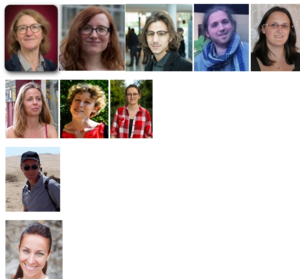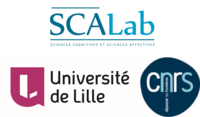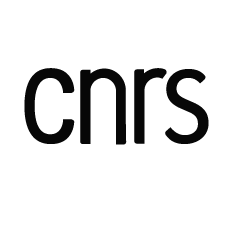APPREL2
Learning and development of the L2 lexicon in a school learning context - APPREL 2
ANR PRC Grant 2016-2020

The Team

Partner 1: Université de Lille, Scalab

Séverine Casalis, coordinatrice
Gwendoline Mahé, contributrice
Gary Boddaert, ingénieur d'étude, doctorant
Camille Cornut, doctorante
Florian Salomé, doctorant
Partner 2: Université de Strasbourg, LPC
Partner 3: Université Grenoble Alpes, LPNC
Partner 4: Université de Lyon 2, CRTT
Partner 5 : Centro de Enseñanza Superior Cardenal Cisneros, Universidad Complutense de Madrid, Spain Research group in Psycholinguistics, CIPsi, School of Psychology, University of Minho, Portugal

Montserrat Comesana
Partner 6: University of Dundee (UK), language and learning lab
Lynne Duncan
Presentation
The APPREL2 project aims to provide an account of the learning and development of the foreign language (FL or L2) lexicon in a schooling context. This context is characterized by the fact that L1 reading acquisition in still ongoing in children and that exposure to the L2 is quantitatively low. The project draws upon theoretical models developed in cognitive psycholinguistics: first, the well-structured models of skilled visual word recognition in bilinguals (especially, the BIA and BIA+ models, Dijkstra et al, 1998; Dijkstra et al 2002); and second, the models developed to describe the process of learning to read in monolinguals (Ehri, 2014). The project aims to test a developmental version of bilingual visual word recognition, BIA-d (Grainger et al, 2010), and to extend it by integrating a phonological component. This approach will be complemented by a language-teaching perspective that aims to connect our experimental studies to classrooms situations and to situate (visual) word recognition within a broader spectrum of emerging L2 skill and knowledge. Models of L2 lexical development (DevLex, MacWhinney) will therefore also be considered. The scientific objectives are to demonstrate how L2 words are progressively integrated in the lexicon and to analyse how L1 –L2 lexical and sublexical information interacts. We will assess how L2 word processing, especially written words, evolves according to children’s age and reading level. We also will examine orthographic processing during L2 word learning. How FL lexicon development is related to reading skills will also be explored through the impact of a partial L2 school immersion on the learning of a L3. The challenge is to trace the benefits of the early learning of two languages and the mastery of two systems of grapheme to phoneme correspondences.
Espace membres partenaires: ICI

